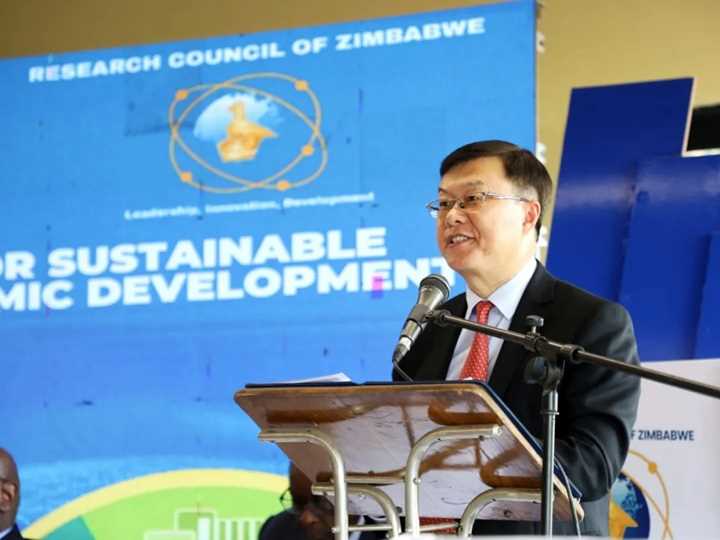
23 April 2025
The Vice President of the Republic of Zimbabwe, Hon. Cde Dr. C. G. D. N. Chiwenga;
Minister of State for Bulawayo Province, Hon. Judith Ncube;
Other Honourable Ministers and Deputy Ministers here present;
Senior government officials, business leaders, Distinguished guests, Ladies and gentlemen,
It is an immense honour to stand before you for the second time at the Zimbabwe International Trade Fair. As I address this prestigious International Business Conference, I am deeply inspired by the visionary theme of this year’s Trade Fair: Industrialisation: Crafting an Integrated Economic Landscape.
The world today stands at a crossroads. While the global economy grapples with sluggish growth, rising protectionism, and geopolitical uncertainties, the need to craft an integrated economic landscape has never been more urgent. China and Zimbabwe, as steadfast partners, share a profound conviction: multilateralism and win-win cooperation are the only pathways to industrialisation and sustainable prosperity. This conviction is not theoretical — it is rooted in our shared history, and etched into the DNA of our bilateral relations, which have withstood the test of time for 45 glorious years.
Ladies and gentlemen, dear friends,
As we commemorate the 45th anniversary of Zimbabwe's independence and our diplomatic ties, we celebrate not just a milestone, but decades of our enduring solidarity and tangible achievements. China takes great pride in standing alongside Zimbabwe during its liberation struggle and serving as a steadfast partner in its post-independence development. For many years, China has been Zimbabwe's largest source of foreign investment and one of its most significant trading partners. In the past year, this partnership continued to flourish: Chinese investments grew steadily, with new industrial and infrastructure projects either underway or just commissioned. Our bilateral trade volume reached a historic peak of $3.8 billion U.S. dollars in 2024 — a 23.9% year-on-year increase.
The remarkable progress in our cooperation is inseparable from China's own development, which has enabled it to provide greater support for Zimbabwe and Africa. When exploring how China has achieved success and what experiences can be drawn upon, I believe the following three aspects are worthy of our attention:
Firstly, High-Quality Development.
Despite a turbulent and volatile global landscape, China’s economy grew by 5% year-on-year in 2024, maintaining its position as one of the world’s fastest-growing major economies. China continues to drive approximately 30% of global economic growth—a testament to its resilience and dynamism. China remains a stable anchor and dynamic engine for the world economy. And we are committed to sharing development opportunities with Zimbabwe and all our partners.
Secondly, High-Standard Opening-Up.
Openness is the hallmark of China’s modernisation. Today, China is the largest trading partner for over 150 countries and regions, and the world’s top commodity trader. While some nations resort to trade barriers and weaponize tariffs, China stands firm in defending not only its own interests, but also the rules-based multilateral trading system. China, together with the majority of international community, believes that protectionism and arbitrary tariffs pose grave challenges to global economic growth, particularly for developing countries. Just as the UN Industrial Development Organization (UNIDO) recently underscored, these tariffs undermine economic efficiency, diminish the benefits of trade, and weaken competitiveness, ultimately putting jobs at risk worldwide, thereby affecting the most vulnerable countries the hardest.
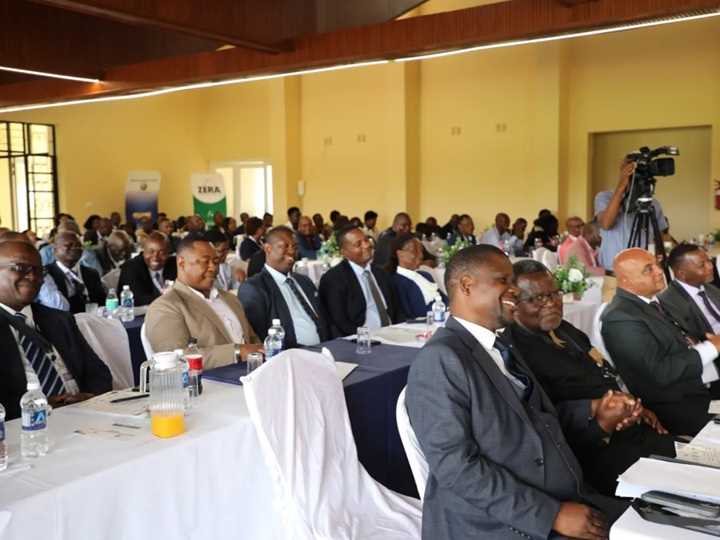
Amid the headwinds of unilateralism and protectionism, China’s doors will remain wide open to Zimbabwe and all other nations committed to shared prosperity.
Thirdly, Innovation-Driven Growth.
In 2024, China’s high-tech manufacturing sector expanded by 8.9%, while energy intensity fell by over 3%. From the historic Chang’e-6 lunar mission to an annual production of 13 million electric vehicles, China’s innovation momentum is unstoppable. Breakthroughs like DeepSeek—a high-performance, open-source AI model developed by Chinese innovators—are democratizing access to cutting-edge technology, thereby bridging the digital divide for developing nations.
By aligning our innovation agendas, China and Zimbabwe can unlock new frontiers in digital economy, green technology, and skills development.
Ladies and Gentlemen, Dear friends,
Related Stories
China’s development has powered global economic growth and fueled the enhancement of the Comprehensive Strategic Partnership of Cooperation between China and Zimbabwe, which has blossomed into an exemplary model of South-South cooperation. For decades, our collaboration rests upon three fundamental pillars:
First pillar: infrastructure development.
Investments in key projects - from the state-of-the-art Robert Mugabe and Victoria Falls International Airports to the transformative Hwange and Kariba South Power Stations - have illuminated homes, connected communities, and energized industries. In the burgeoning lithium sector, Chinese enterprises have committed over $1.5 billion U.S. dollars, creating jobs, boosting exports, and catapulting Zimbabwe into a strategic position within the global green energy value chain. Meanwhile, the Chinese investments across diverse sectors - including electrical appliances, building materials, agricultural inputs - have significantly bolstered Zimbabwe's industrial capacity.
Second Pillar: People-Centred Industrialisation
China's investments drive Zimbabwe’s industrialisation with a human touch. The 1.5-billion-dollar Dinson Steel Plant, the 1-billion-dollar Titan New Energy Complex and the multi-billion dollars Parm River Energy and Metallurgical Economic Zone exemplify this approach: beyond steel and power, they have created thousands of skilled jobs and facilitated critical technology transfer. These projects are transforming lives: university graduates now oversee production lines, single mothers have become certified technicians.
Beyond profits, over 200 CSR initiatives by Chinese enterprises underscore our shared belief: economic growth must uplift people. From vocational training workshops to community health programs, we prove daily that commercial success and social impact can - and must - go hand-in-hand.
Third pillar: Knowledge Transfer for Sustainable Development.
Since 2018, China has empowered Zimbabwe's sustainable development in three domains:
l. Academic Excellence: 3,200 Zimbabwean students have pursued degrees in Chinese universities, forming a future-ready talent pool.
lI. Leadership Development: 2,000 officials and professionals have enhanced their management and technical skills through exchange programs, creating a network of change-makers.
lII. Digital Transformation: The NetOne Broadband Project, High Performance Computing Center, and projects including Huawei's Digital Truck and "Seeds for the Future" have created over 2,000 tech professionals annually.
With these efforts, China has robustly supported Zimbabwe’s Vision 2030 and Heritage-Based Education 5.0 which prioritize innovation, entrepreneurship, and equitable development.
Ladies and gentlemen,
At the recent Beijing Summit of Forum on China-Africa Cooperation, Chinese President Xi Jinping announced 10 Partnership Actions to promote Africa’s industrialisation and modernisation. President Mnangagwa's historic 2024 state visit to China further solidified our partnership through 17 landmark agreements, reinforcing what we proudly call a "five-star ironclad" multidimensional cooperation framework spanning political coordination, trade integration, security cooperation, people-to-people exchange, and global governance alignment.
On its path to Vision 2030, Zimbabwe stands poised to further harness the advantages of our collaboration and leverage the world's largest consumer market and production networks.
Dear friends,
Zimbabwe is a nation uniquely endowed with exceptional human capital, abundant natural resources, and remarkable cultural resilience. Guided by His Excellency President ED Mnangagwa’s visionary“ mantra—“Nyika inovakwa nevene vayo (A country is developed by its own people) and “Zimbabwe is Open for Business”—Zimbabwe” has proudly emerged as one of the fastest-growing economies in Africa, actively shaping Africa’s integrated economic future.
To further unlock its full potential, I believe the efforts are expected to involve optimizing its business climate to attract more high-value investments, streamlining regulations to reward innovation and entrepreneurship, maintaining policy continuity to honour long-term commitments, and sustainably addressing debt issues to secure financial support for more transformative projects.
Collectively, these steps will prove instrumental in transitioning Zimbabwe to a diversified, innovation-led economic model, which powers the realization of Zimbabwe’s Vision 2030.
To conclude, I wish the International Business Conference and this year's Zimbabwe International Trade Fair every success. May this event promote deeper understanding, forge lasting partnerships, and catalyze robust trade collaborations that benefit all. Zvakanaka! [All is well!]










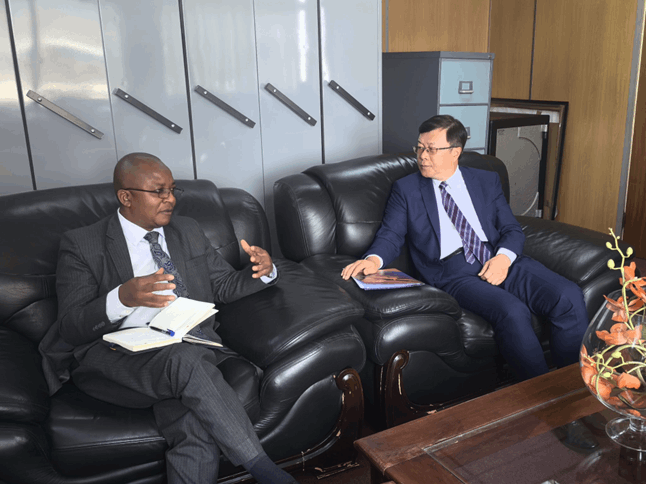
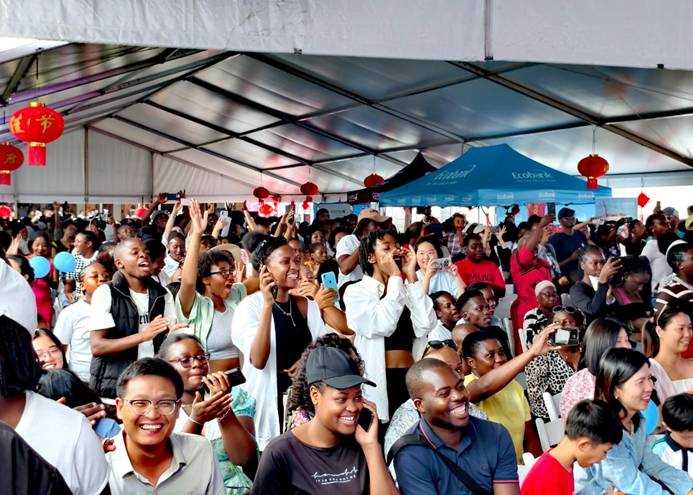
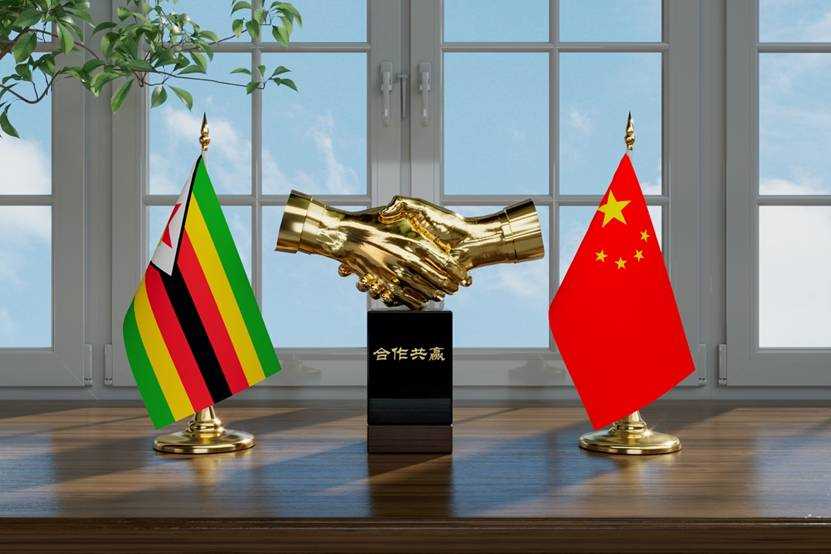

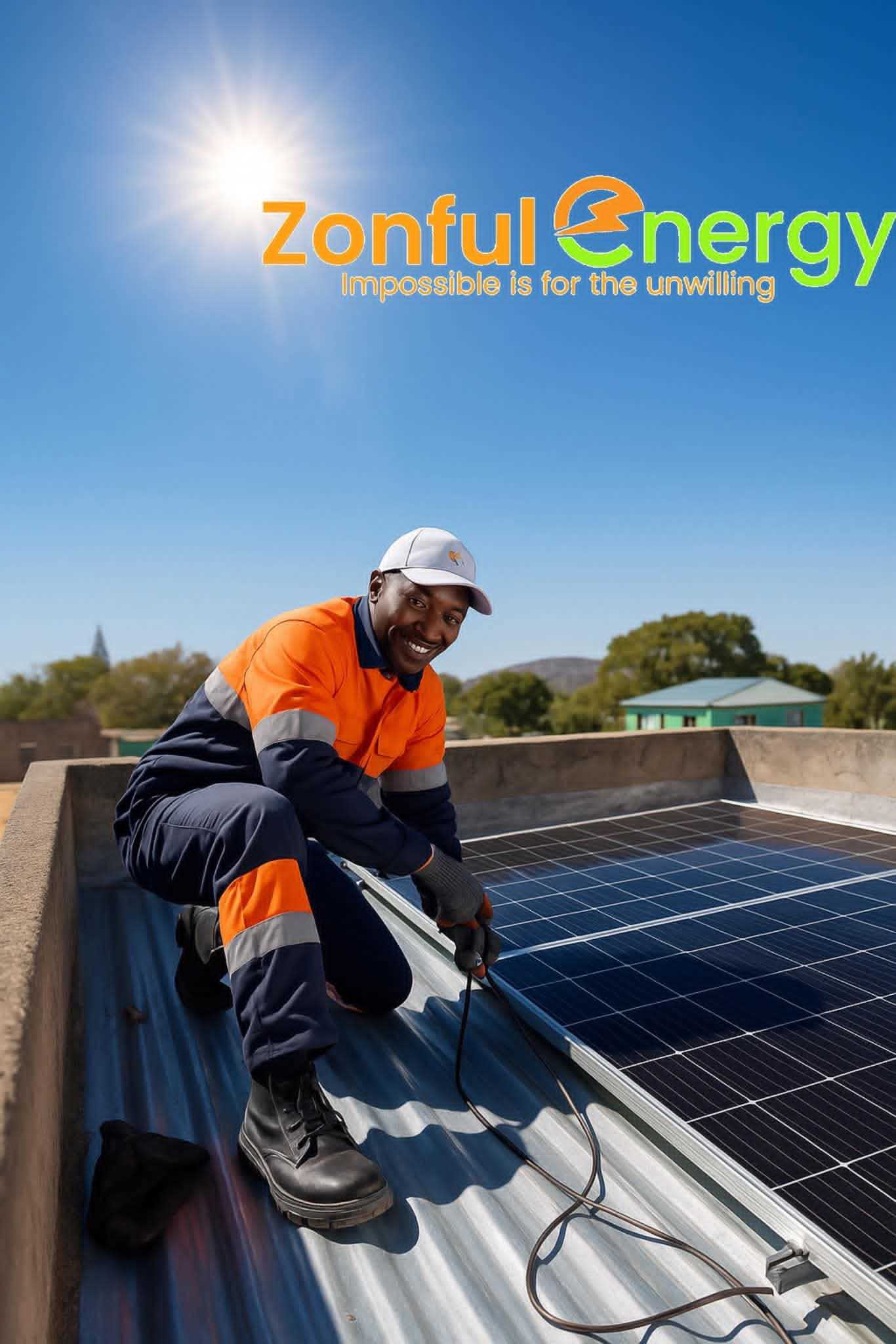

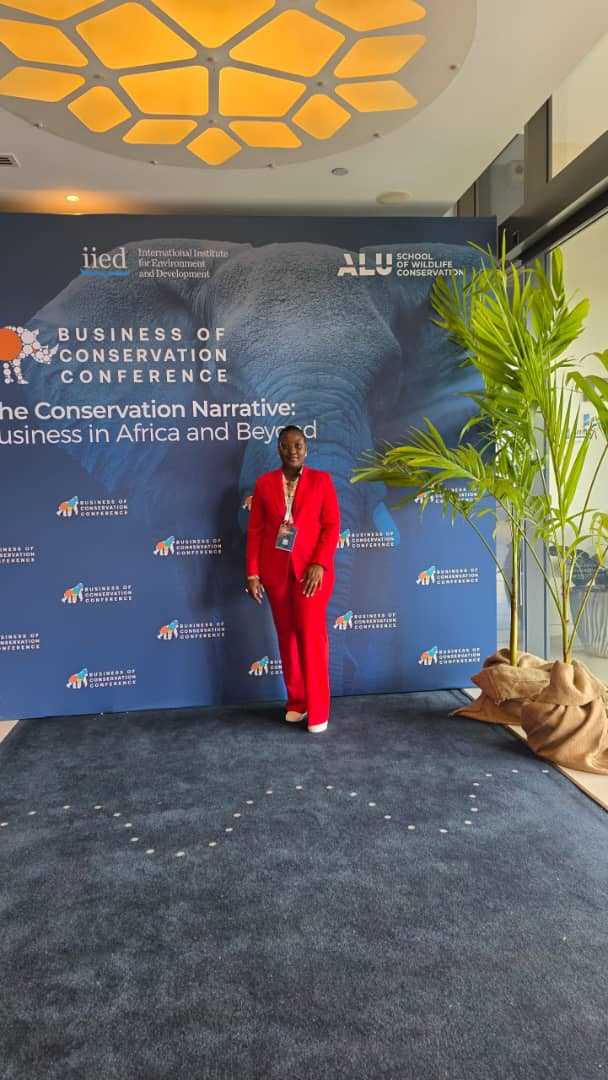



Leave Comments